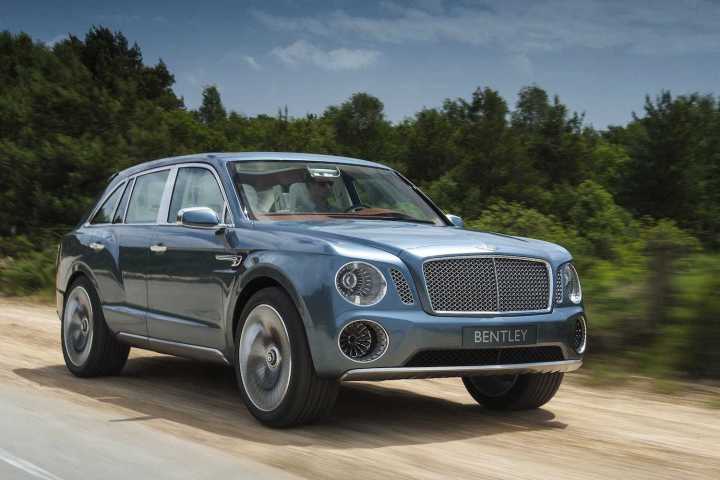
It looks like that wasn’t a bluff.
When it goes on sale next year, the Bentayga will be the fastest SUV on the market, a fact proven by the latest teaser video from the UK automaker, showing a prototype reaching 301 kph/ 187 mph on a test track.
What propels the more than two-ton SUV to such incredible speeds? That would be the work of Volkswagen Group’s 6.0-liter twin-turbocharged W12 engine, which develops 600 horsepower and 663 pound-feet of torque. All that torque should lead to more than just a top-speed champion, but a sub-4.0-second zero-to-60 mph run.
Performance-wise, the Bentayga’s closest rivals include the Porsche Cayenne Turbo S, which tops out at 176 mph, the Land Rover Range Rover Sport SVR, which crests at 162 mph, and the Jeep Grand Cherokee SRT, which calls it quits at 160 mph. Of course, that last contender’s max effort may be significantly different in a couple years when the Hellcat’s 6.2-liter supercharged HEMI V8 turns the Jeep into a Trackhawk.
When the Bentley Bentayga initially goes on sale, it will exist in a new category due to its guaranteed $200,000-plus price tag, but things won’t stay that way for long. Rolls Royce is hard at work on its own ultra-premium SUV, and Lamborghini has pushed up production of its Urus SUV thanks to financial incentives from the Italian government.
Soon the ultra rich won’t have to drive a “low-class” Mercedes-Benz, BMW, or Porsche when they have utilitarian errands to run to send employees on, or soccer games to attend to send employees to chaperone.


